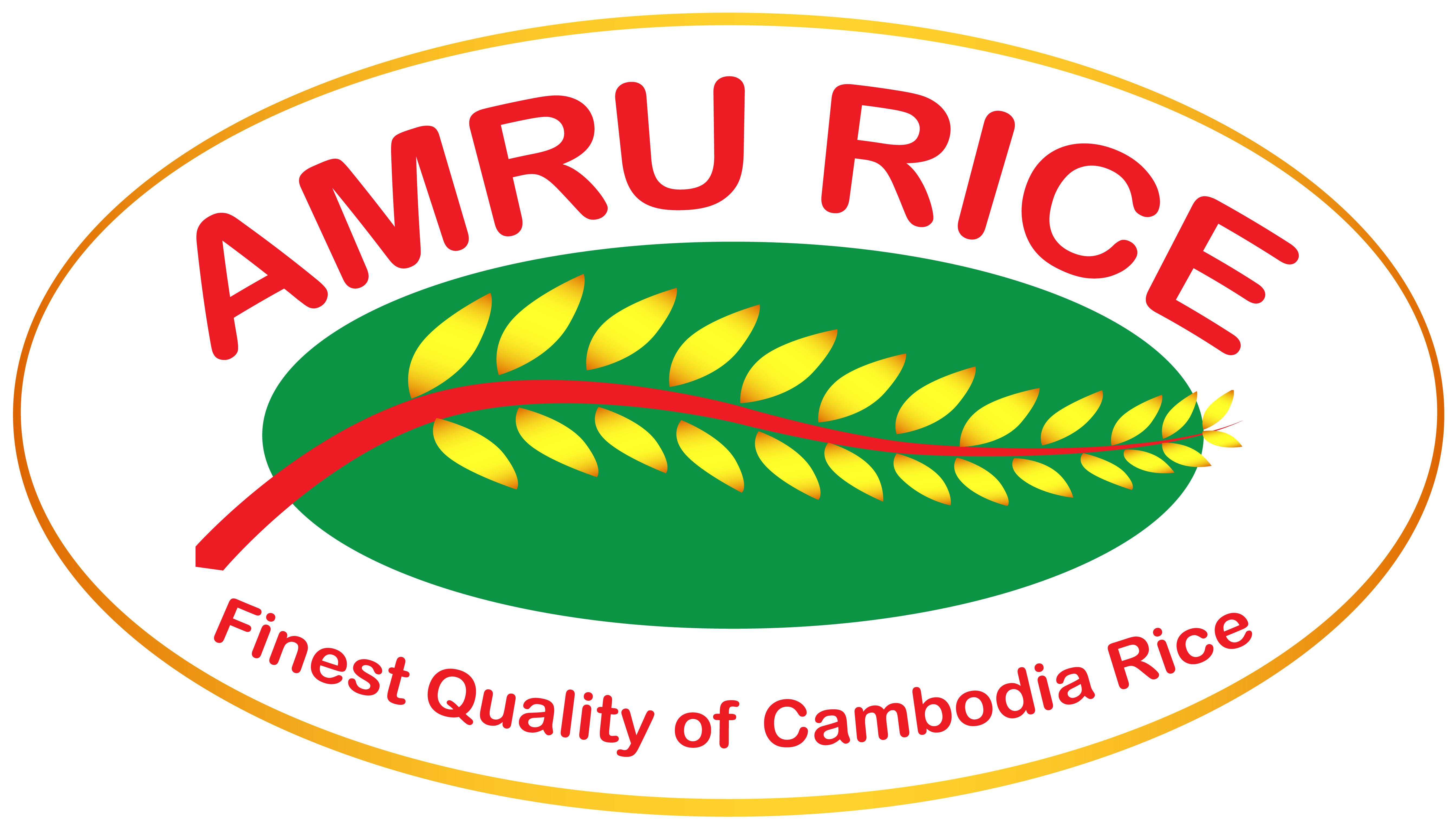(Cambodia Investment Review: October 20, 2021)
In an exclusive interview with Cambodia Investment Review Leader Talks CEO of Amru Rice Cambodia Co., Ltd., Mr. Saran Song, Cambodia’s leading rice exporter and miller.
Saran shared the company’s ongoing business model, auditing progress for certified British Premium Standard, and the trial of BlocRice digital technology.
Rice is a nutritional staple food for more than half of the world’s population. With its huge necessity, Saran believes in the positive and sustainable impacts it can provide to the whole society.
Amru Rice Cambodia’s initiation was driven by the family background in the rice business sector during the 1960s and the government’s policy of exporting the country’s high volume of rice yields in 2008.
“We started in 2011 as a family-owned business in which there were not many people involved,” Saran said.
Rice makes up half of Cambodia’s agricultural GDP. Moreover, Cambodia is one of the top 10 rice exporters in the world, which exported 620,000 tons in 2019.
Transparency and Integrity have been set as the company’s vision aligning to the Cambodia Industrial Development Policy 2015-2025 which has been launched with one of the goals to keep sustainable and inclusive economic growth through the promoting of agro-industrial sector development.
Transparency and Integrity with Contract Farming as an Inclusive Business Model
Cambodia (IBeeC) Strategy for Inclusive business is the blueprint to encourage responsible business practices of all parties including the governments, donors, and impact investors.
Amru Rice was selected as one of the impact stories of inclusive business published for the 4th ASEAN Inclusive Business Summit on 22 September this year which was organized by the Inclusive Business Action Network (iBAN) and other international organizations.
“Our inclusive business model has been focusing on the welfare of the farmers, consumers, and the environment,” Saran said.
Through contract farming, the company will purchase the harvested crops from the farmers who followed the guidelines set by the company which ranging from the prohibition of deforestation, killing animals, child labor, and violence for the whole society’s benefit.
“We commerce with transparency, not just for self-interest and damage the environment or other well-being because every life has its worth and Amru is about life,” Saran added.
Currently, there are around 10,000 households under the contract that prioritizes indigenous people mostly from remote areas such as Mondulkiri and Preah Vihear province.
“There are hardly any buyers in those remote areas so we contribute to their wishes by providing a market for them,” Saran said.
In addition, through the partnerships between international organizations, farmers will be supplied with crops, regular income based on the market price, and additional benefits based on the product’s quality and standard.
Fairtrade through digitalization “BlocRice”
A BlocRice app is currently being piloted with Oxfam organization and the Dutch government.
The application acts as a digital contract to provide full value chain transparency and traceability between all agriculture cooperatives including cooperative, exporter and importer, and the end consumers.
“Customers can communicate to the farmers by just scanning the barcode of the products on their phones by which they can be aware of who are the farmers, processors, and stockers, etc,” Saran said.
In addition, the consumer can trust that the farmers have been paid correctly and make an informed choice in selecting rice that complies with social conditions and fair production standards which is a form of fair trade that prevents and combat any act of exploitation.
“From A to Z, from the farmers to the customers can access to each other,” Saran said.
“This system will run smoothly once more farmers are familiar with the use of technology plus the technology literacy of the next generations,” Saran added.
Investments in AgriTech to ensure the top quality and standards of products
Amru Rice Cambodia has also been investing in a number of AgriTech projects for the manufacturing process including food processing, milling, and stocking.
“Most of the machines used in the manufacturing process are international standard machines which were imported from Japan, England, and Switzerland so we can ensure that our products comply with the international standards,” Saran said.
“We try to adopt the latest technology in the manufacturing process that can ensure the best quality and standards,” Saran said.
The company is being examined to be eligible for a Premium British Standard called British Retail Consortium (BRC) by the external auditing firm next week in addition to Amru’s certified standards including ISO, GHPs, and HACCP.
“In the future, we are also in the stage of waiting to integrate robotic technology in the manufacturing process,” Saran said.
In addition, Saran mentioned being grateful for the support from the Khmer locals overseas especially in France and has called for more support for any Cambodian products not just Amru’s products from other Khmer residents in other European countries.
“Not just Amru’s products, we should support our products as long as they have gone through certified standards as if we can support Thai products with that standard, why can’t we support our local brands with those same standards,” Saran added.
The company is also planning on developing other organic rice processed products including rice for infants.
The company has just celebrated its 10th anniversary in February this year citing a decade of positive impacts to the whole society with various achievements and cooperation with both public and private sectors.
H.E Sakhon Veng, the Minister of Agriculture, Forestry, and Fisheries on October 14 published on his Facebook account that Cambodia exported 5.93 million tons of agricultural products to 90 countries and territories in the first nine months of this year.
Cambodia’s agri-food sector is ripe for investment, according to a panel of business experts from the private and public sector who discussed the potential for increased agricultural profits in the Kingdom.
Australia has reaffirmed its commitment in Cambodia’s agri-food sector detailing a new Agri-food Investments Desk collaboration with the Council for the Development of Cambodia (CDC) and the Ministry of Agriculture, Forestry and Fisheries (MAFF).

